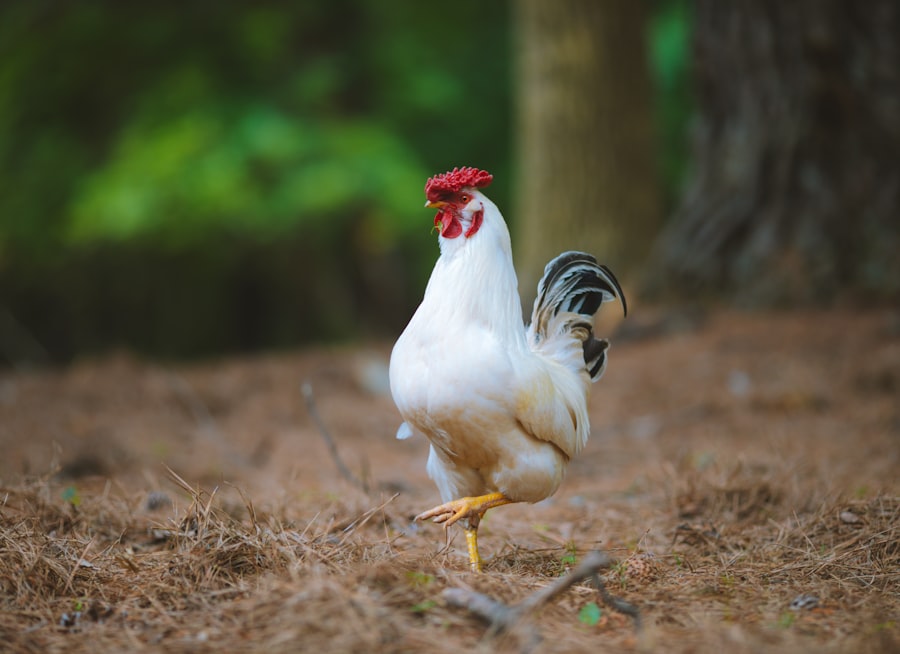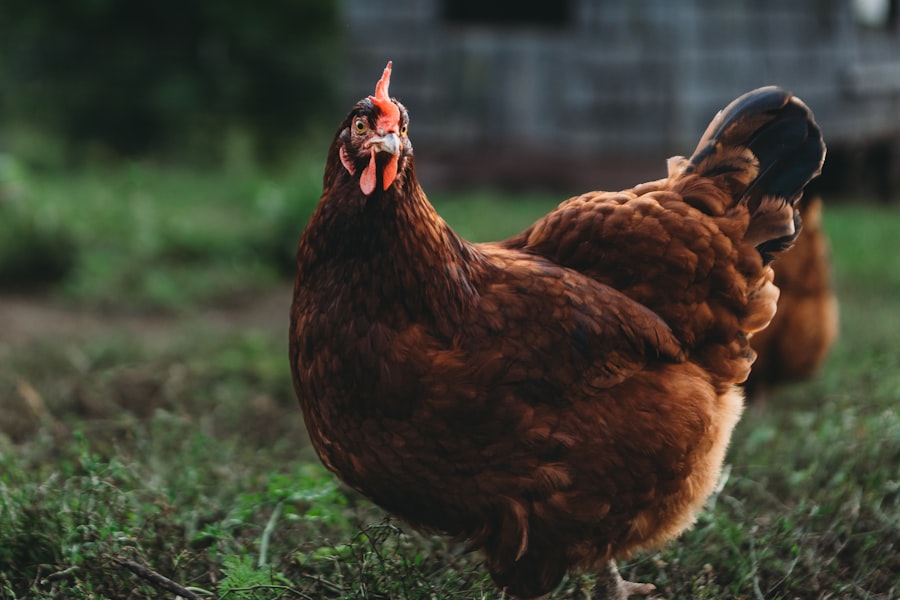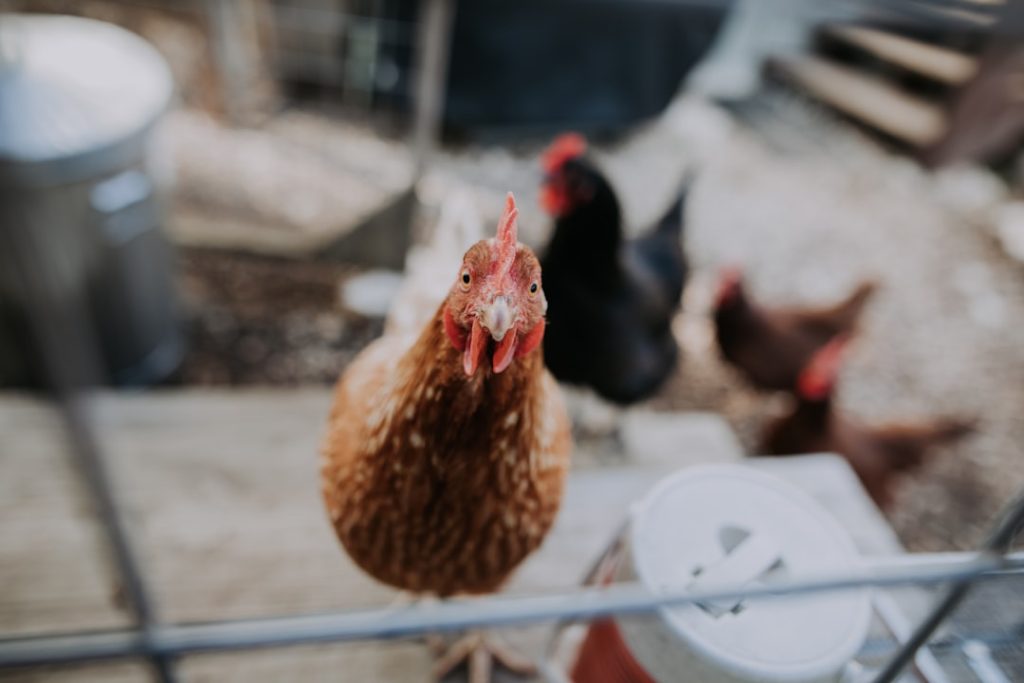Chickens are known for their vocal nature, producing a variety of sounds that serve different purposes. These vocalizations include clucking, crowing, squawking, and cackling, with varying volumes and frequencies depending on the breed and individual bird. Chickens use these sounds to communicate with each other, express contentment or distress, and signal when they are laying eggs or feeling threatened.
As social animals, chickens rely on vocalizations for interaction within their flock. Soft clucking often indicates contentment, while loud squawking may signal distress or danger. Roosters are particularly known for their crowing, which can occur throughout the day but is most prominent in the early morning hours.
The noise level of chickens can be a significant consideration for those planning to keep them as pets or for egg production. While some chicken breeds are generally quieter than others, all chickens have the potential to make noise. Understanding the natural behavior and vocalizations of chickens is crucial for managing expectations and developing strategies to minimize potential noise disturbances in residential or urban settings.
Table of Contents
- 1 Factors that contribute to the noise level of chickens
- 2 Managing and minimizing chicken noise
- 3 The impact of chicken noise on neighbors
- 4 Legal regulations and restrictions on keeping chickens
- 5 Tips for choosing quieter chicken breeds
- 6 Balancing the benefits of keeping chickens with noise considerations
- 7 FAQs
Key Takeaways
- Chickens can be noisy animals, with roosters being the loudest due to their crowing.
- Factors such as breed, age, and environmental stress can contribute to the noise level of chickens.
- Managing chicken noise can be achieved through proper coop design, providing enrichment, and reducing stressors.
- Excessive chicken noise can lead to complaints from neighbors and strained relationships.
- Legal regulations and restrictions on keeping chickens vary by location and should be researched before keeping chickens.
Factors that contribute to the noise level of chickens
Breed and Temperament
Different chicken breeds have varying vocalization tendencies, with some being naturally quieter than others. For example, some bantam breeds are known for their gentle clucking and quieter demeanor, while larger breeds like Rhode Island Reds or Leghorns tend to be more vocal. Additionally, individual temperament plays a role in how noisy a chicken may be. Some chickens may be naturally more vocal or assertive, while others may be more reserved.
Environmental Conditions
Environmental conditions can also impact the noise level of chickens. For example, if chickens are kept in close proximity to other animals or loud machinery, they may feel stressed and vocalize more frequently. Similarly, overcrowding or lack of enrichment can lead to increased noise as chickens become bored or agitated.
Management Practices
Proper management practices, such as providing ample space, enrichment, and a calm environment, can help minimize excessive noise from chickens. By addressing any underlying health or welfare issues, you can also help reduce noise levels.
Managing and minimizing chicken noise

While it’s unrealistic to expect chickens to be completely silent, there are several strategies for managing and minimizing their noise levels. Providing a suitable living environment is essential for keeping chickens content and reducing excessive vocalizations. This includes ensuring they have enough space to roam and explore, access to fresh food and water, and a comfortable coop for resting and laying eggs.
Enrichment activities, such as perches, dust baths, and toys, can also help keep chickens occupied and reduce boredom-related noise. Another important aspect of managing chicken noise is addressing any potential stressors in their environment. This may include minimizing exposure to loud noises, predators, or other animals that may cause distress.
Additionally, maintaining a consistent daily routine for feeding and care can help reduce anxiety and limit excessive vocalizations. For roosters specifically, providing a dark and quiet environment at night can help regulate their crowing behavior and minimize disturbances to neighbors.
The impact of chicken noise on neighbors
The noise level of chickens can have a significant impact on neighbors, especially in urban or suburban areas where properties are in close proximity to each other. Excessive crowing or squawking from roosters can be particularly disruptive, especially in the early morning hours when people are trying to sleep. Additionally, constant noise from a large flock of chickens can be a source of frustration for neighbors who value peace and quiet in their homes.
Excessive chicken noise can lead to strained relationships with neighbors and even legal disputes if not addressed proactively. It’s important for chicken owners to be mindful of the potential impact their birds may have on those around them and take steps to minimize noise disturbances. Open communication with neighbors about the presence of chickens and proactive efforts to manage noise levels can help foster positive relationships and mitigate potential conflicts.
Legal regulations and restrictions on keeping chickens
In many urban and suburban areas, there are legal regulations and restrictions on keeping chickens, including specific guidelines related to noise levels. These regulations may include limits on the number of chickens allowed per property, requirements for coop size and placement, and restrictions on roosters due to their crowing behavior. Some municipalities may also have noise ordinances that apply to all animals, including chickens.
It’s important for anyone considering keeping chickens to familiarize themselves with local regulations and ensure compliance with any applicable laws. This may involve obtaining permits or approvals from local authorities, as well as adhering to specific guidelines related to noise management. Failure to comply with legal regulations can result in fines or other penalties, so it’s essential to do thorough research and seek guidance from local authorities before bringing chickens onto a property.
Tips for choosing quieter chicken breeds

Quieter Breeds for Urban Environments
For those concerned about potential noise disturbances from chickens, choosing quieter breeds can be a proactive strategy for managing noise levels. Some chicken breeds are known for their gentle demeanor and quieter vocalizations, making them more suitable for urban or suburban environments. Bantam breeds, such as Silkies or Cochins, are often recommended for their calm nature and softer clucking sounds.
Heritage Breeds for a Quieter Flock
Additionally, certain heritage breeds like Orpingtons or Sussex are known for being relatively quiet compared to more vocal breeds like Leghorns or Rhode Island Reds. When selecting chicken breeds, it’s important to consider not only their noise level but also their suitability for the local climate and egg production capabilities.
Individual Bird Temperament Matters
Considering the temperament of individual birds within a breed can also play a role in managing noise levels. Working with a reputable breeder or seeking guidance from experienced chicken owners can help ensure that the chosen breeds align with individual preferences and needs.
Balancing the benefits of keeping chickens with noise considerations
While the noise level of chickens is an important consideration for anyone thinking about keeping them, it’s also essential to balance this factor with the many benefits that chickens can provide. Chickens are valuable for their fresh eggs, pest control abilities, and potential as pets with unique personalities. They can also contribute to sustainable living practices through composting and natural fertilizer production.
For those concerned about potential noise disturbances from chickens, there are several strategies for finding a balance between enjoying the benefits of keeping chickens while minimizing noise impacts on neighbors. This may include selecting quieter breeds, implementing sound management practices, and maintaining open communication with neighbors about any potential concerns. Ultimately, by being mindful of the noise level of chickens and taking proactive steps to manage it, it’s possible to create a harmonious environment where both chickens and neighbors can coexist peacefully.
If you’re considering keeping chickens, you may be wondering just how noisy they can be. According to a recent article on Poultry Wizard, “The Chicken Coop Country Diner,” the noise level of chickens can vary depending on the breed and individual personality of the bird. Some breeds are known for being more vocal than others, so it’s important to do your research before bringing chickens into your backyard. Check out the article for more information on keeping chickens and managing their noise levels. (source)
FAQs
How noisy are chickens to keep?
Chickens can be noisy, especially when they are laying eggs or when they feel threatened. Roosters are typically louder than hens, as they crow to establish their territory and communicate with other chickens.
What factors can affect the noise level of chickens?
The breed of chicken, the individual personality of the bird, and the environment in which they are kept can all affect the noise level of chickens. Some breeds are known to be quieter than others, and chickens that are stressed or uncomfortable may also be noisier.
Are there ways to reduce the noise level of chickens?
Providing a comfortable and spacious living environment for chickens, ensuring they have enough food and water, and keeping them entertained with toys or activities can help reduce their noise level. Additionally, keeping a smaller number of chickens and choosing quieter breeds can also help minimize noise.
Are there any regulations or restrictions on keeping chickens in urban areas due to noise?
Many urban areas have regulations or restrictions on keeping chickens, including noise ordinances. It’s important to check with local authorities to understand the specific rules and regulations regarding keeping chickens in urban or suburban areas.
Meet Walter, the feathered-friend fanatic of Florida! Nestled in the sunshine state, Walter struts through life with his feathered companions, clucking his way to happiness. With a coop that’s fancier than a five-star hotel, he’s the Don Juan of the chicken world. When he’s not teaching his hens to do the cha-cha, you’ll find him in a heated debate with his prized rooster, Sir Clucks-a-Lot. Walter’s poultry passion is no yolk; he’s the sunny-side-up guy you never knew you needed in your flock of friends!







